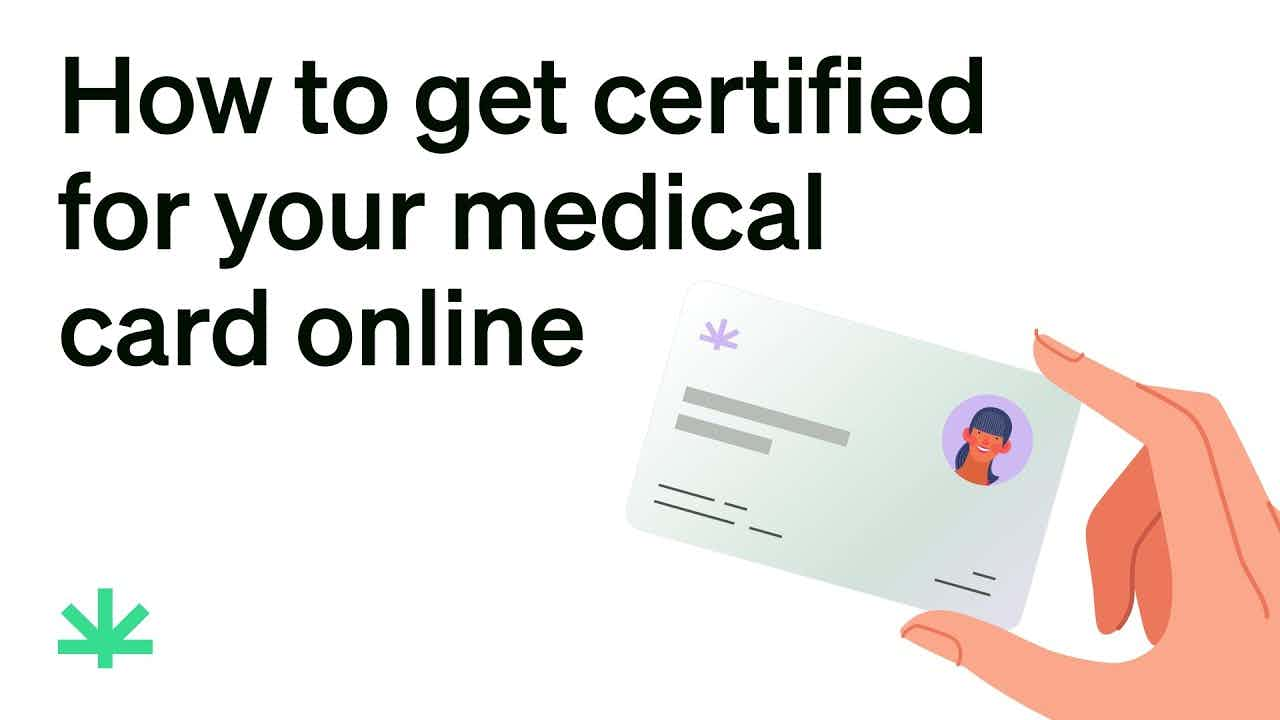Best Care, Best Value
Get Your South Dakota Medical Marijuana Card in Minutes
Quick and Easy Process
Get Approved or Your Money Back
Already a Leafwell patient?
Log in here
Benefits of Getting a Card
Wondering how a medical marijuana card in South Dakota can transform your cannabis experience?
State-Specific Steps

1
Register Online With Leafwell
Become one of the first medical marijuana patients in South Dakota by joining our waitlist today! We’ll notify you as soon as virtual MMJ consultations are available.
2
Discuss Medical Marijuana With Your Provider
You will be able to speak to a healthcare provider and qualify for a South Dakota medical marijuana card online. The cost of the online consultation is yet to be established, and you are only billed if approved.
3
Receive Your Certificate From Leafwell
This certificate says that your doctor recommends that you become a cannabis patient under the state’s laws and is required to apply for your MMJ card.
4
Apply for a Card With the State of South Dakota
Once approved, you’ll receive a medical card and can legally purchase up to 3 oz of medical marijuana from South Dakota dispensaries.
Trusted by 400,000+ Patients

Apply for South Dakota
Claim Your Medical Card Today
See a Doctor NowWhat You Need to Know
Apply NowEligibility / Patient
South Dakota residents aged 18 years old or older may be eligible for a medical marijuana card.
Caregiver
Medical marijuana patients in South Dakota can have a caregiver. Caregivers must be at least 21 years old and agree to assist with a qualifying patient’s medical use of cannabis.
Can Minors Qualify?
Yes. Minor patients may be eligible for a medical marijuana card in South Dakota with parent or legal guardian consent. The parent or legal guardian must also serve as the minor patient’s primary caregiver.
Legal Topics
Medical marijuana is legal in South Dakota for a limited number of qualifying conditions. Recreational cannabis, however, is illegal and is taken very seriously by law enforcement.
Medical patients can buy up to 3 ounces of cannabis every 14 days.
Possession of 2 or fewer ounces of cannabis without a valid medical card is considered a misdemeanor and can lead to one year in prison and a maximum fine of $2,000. Being caught with over 2 ounces of cannabis is a felony, with prison sentences and fines increasing heavily.
CBD is legal in South Dakota if it contains less than 0.3% THC.
Caregivers
You must meet the following criteria to become a medical marijuana patient’s designated caregiver in South Dakota:
- Be at least 21 years old.
- Agree to assist with the qualifying patient’s medical use of cannabis.
- Have not been convicted of a disqualifying felony offense.
- Assist no more than five qualifying patients with the medical use of cannabis unless the designated caregiver’s qualifying patients each reside in or are admitted to a health care facility or residential care facility where the designated caregiver is employed.
Reciprocity
South Dakota does not have medical marijuana reciprocity and, therefore, doesn’t recognize out-of-state medical marijuana cards.
The following states and U.S. territories do have medical cannabis reciprocity laws where you can use your South Dakota medical card:
- Arizona
- Arkansas *
- Hawaii *
- Louisiana
- Maine
- Michigan (at the dispensary’s discretion)
- Nevada
- New Hampshire
- New Jersey *
- New Mexico
- Oklahoma *
- Puerto Rico
- U.S. Virgin Islands *
- Utah * (up to two 21-day periods in a calendar year)
- Washington, D.C.
*Visitors must complete a visiting patient application with the state program.
States that have legalized recreational cannabis for adults 21 and older but do not accept out-of-state cards include:
- Alaska
- California
- Colorado
- Connecticut
- Illinois
- Maryland
- Massachusetts
- Minnesota (currently only Tribal dispensaries)
- Missouri
- Montana
- New York
- Oregon
- Vermont
- Washington
FAQs
Click here for more Frequently Asked Questions about South Dakota.
How much does a South Dakota Medical Marijuana certificate and card cost?
We do not provide online medical marijuana certifications or cards for South Dakota patients yet, but hope to be open soon.
The application fee for the state-issued medical marijuana card is $50.
What medical conditions qualify for a Medical Marijuana Card in South Dakota?
In South Dakota, the following conditions may qualify you for a medical marijuana certificate and card:
- A chronic or debilitating disease or medical condition or its treatment that produces one or more of the following:
- Cachexia or wasting syndrome (e.g. HIV/AIDS);
- Severe, debilitating pain;
- Severe nausea (e.g. cancer/chemotherapy);
- Seizures (e.g. epilepsy);
- Severe and persistent muscle spasms, including those characteristic of multiple sclerosis (MS).
What do I need to know about applying for my Medical Cannabis Card in South Dakota online?
South Dakota’s medical cannabis program is fully established, however, patients must be certified by a licensed physician, physician assistant, or advanced practice nurse practitioner during an in-person visit with a physical examination.
Unfortunately, patients cannot use telemedicine services, like Leafwell, at this time. You can join our waitlist and be notified once Leafwell is open and seeing patients online in South Dakota.
The general steps to getting a South Dakota medical cannabis card include:
- Schedule an appointment and speak to a licensed practitioner.
- Get approved and the practitioner will issue your certification in the state portal.
- Apply with the South Dakota Department of Health and await state approval.
- Receive your medical cannabis card and access a greater number of dispensaries, products, and money off sales tax.
How old do I have to be to apply for a Medical Marijuana Card in South Dakota?
You must be aged at least 18 in order to qualify for a medical marijuana card for yourself.
Can I be/have a caregiver for a medical marijuana patient in South Dakota?
Yes, South Dakota has allows for caregivers on their medical marijuana program.
The designated caregiver must:
- Be at least twenty-one years of age;
- Have agreed to assist with a qualifying patient’s medical use of cannabis;
- Not have been convicted of a disqualifying felony offense; and
- Assist no more than five qualifying patients with the medical use of cannabis, unless the designated caregiver’s qualifying patients each reside in or are admitted to a health care facility or residential care facility where the designated caregiver is employed.